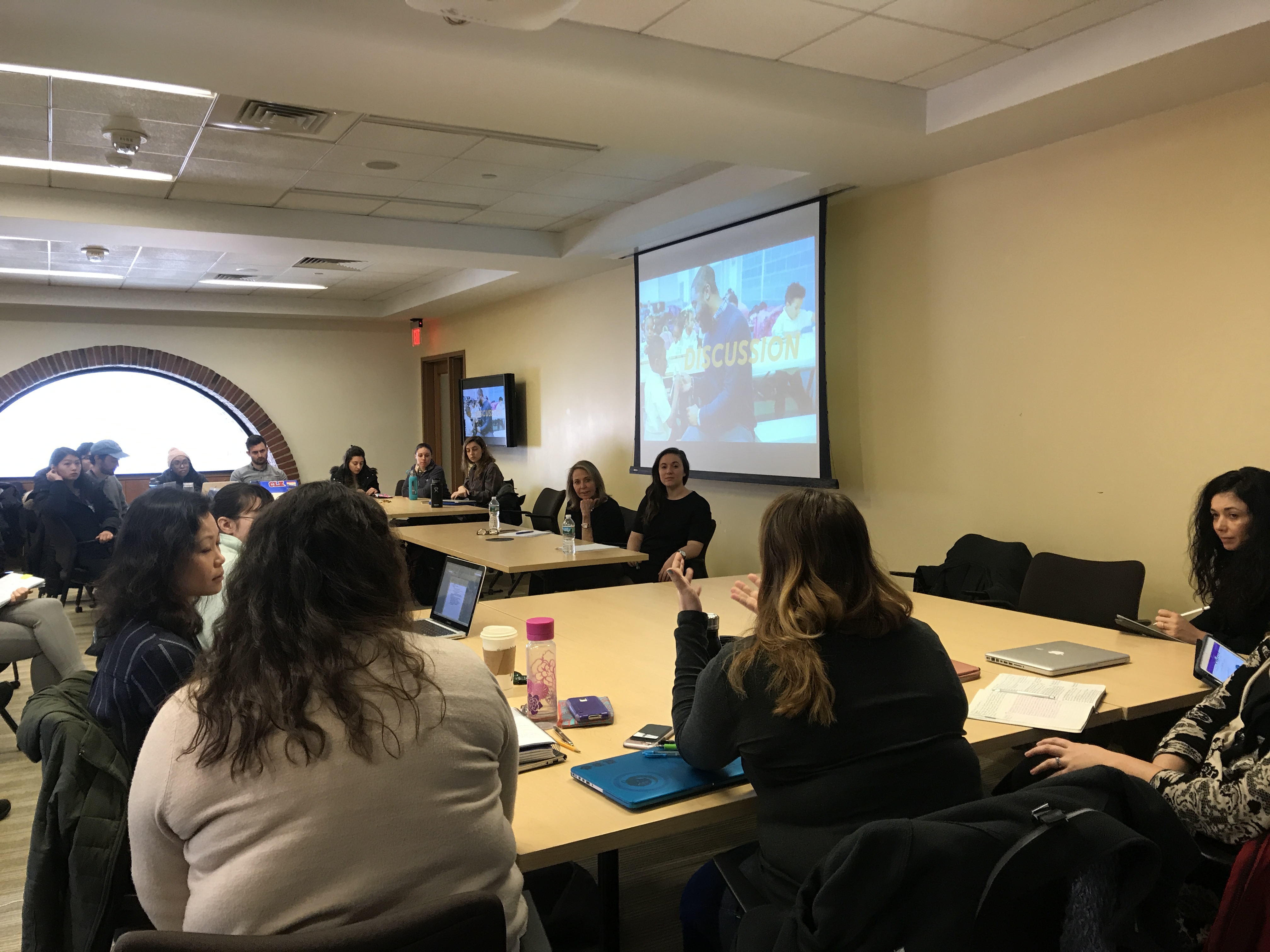Pamela Cantor, M.D. and Laura Sikes, M.Ed. speak at Harvard Graduate School of Education
On February 5, 2018, Turnaround for Children President and CEO Pamela Cantor, M.D. and Manager, Applied Science Laura Sikes, M.Ed., were invited guest speakers at Todd Rose, Ed.D.’s Harvard Graduate School of Education class “Individuality and Personalization in Education.” The class took place at Larsen Hall on the Harvard campus in Cambridge, MA.
Rose’s course offers students an introduction to the science of individuality as a foundation for personalization in education. The topic for this third class of the semester was context. 24 students—all master’s degree candidates—participated.
Cantor and Sikes presented on the science of learning and development, focusing on the impacts of context, both positive and negative, on whole child development. One point of emphasis: seeking to understand how some children recover from trauma and adversity contributes to greater understanding of how all kids can thrive. Implications for educator training and school design were considered.
Cantor shared the latest findings from the Science of Learning and Development Initiative’s (SoLD) recent publications in Applied Developmental Science, including an introduction to four key principles of human development: malleability, context, continuum and integration.
The pair also walked the class through Turnaround’s Building Blocks for Learning framework. Other topics included attachment, the power of positive developmental relationships, and what “personalization” in learning and education is and is not. The class concluded with a vibrant discussion and Q+A segment, including the following note of caution from Dr. Cantor:
“If you put children who have known adversity into classrooms where they are sitting in rows, where they are not interacting and connecting affectively and socially with their peers, if they are not talking, if they are not problem-solving, if they are not able to deeply connect—we are starving the development of their brains.”



Share This Story